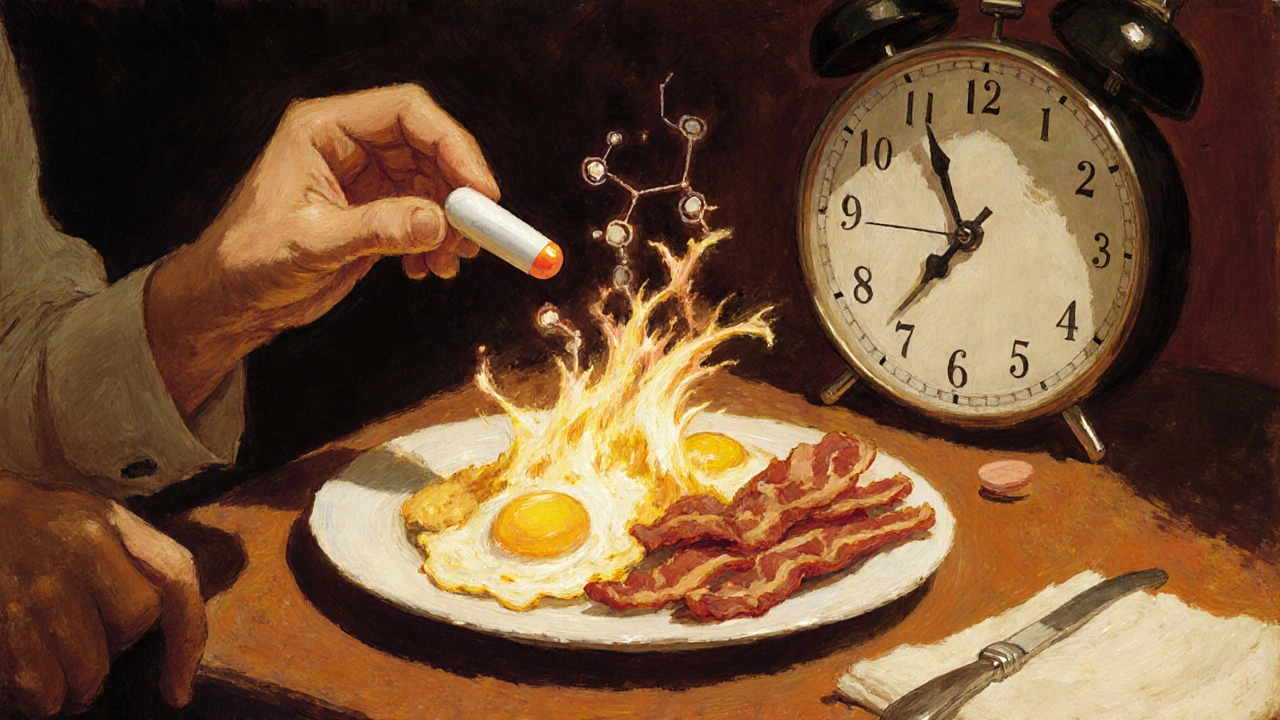Medication Absorption: How Your Body Takes in Drugs and Why It Matters
When you swallow a pill, it doesn’t just disappear and start working right away. Medication absorption, the process by which a drug enters your bloodstream from where it’s taken. Also known as drug uptake, it’s the first step that decides whether your medicine will help—or do nothing at all. Even the best drug in the world won’t work if your body can’t pull it in properly. This isn’t just about swallowing pills—it’s about how your stomach, liver, gut lining, and even what you ate for breakfast all team up to control what gets into your system.
Think of bioavailability, the percentage of a drug that actually reaches your bloodstream after absorption. Also known as drug efficiency, it varies wildly. Some drugs like aspirin get absorbed quickly and easily. Others, like certain antibiotics or antidepressants, struggle to get past your gut wall or get broken down by stomach acid before they even start. That’s why some meds need to be taken on an empty stomach, while others work better with food. It’s not random—it’s science. Your body treats each drug like a different key trying to unlock a different door.
Gastrointestinal absorption, how drugs move from your digestive tract into your blood. Also known as oral absorption, it isn’t the same for everyone. Age, gut health, other medications, and even genetics can change how fast or how much gets through. Someone with low stomach acid might not absorb a certain pill well. Someone taking another drug that slows digestion might delay absorption by hours. And if you’ve had stomach surgery? That changes everything. This is why switching generics sometimes causes unexpected side effects—absorption rates can differ slightly, and for some drugs, even a small change matters.
Then there’s drug metabolism, how your liver breaks down drugs after they’re absorbed. Also known as first-pass metabolism, it can slash the amount of active drug left in your blood before it ever reaches your target. That’s why some pills are given in higher doses than others—even if they’re the same active ingredient. Your liver might be a powerhouse at breaking things down, or it might be slow. Either way, it’s part of the equation.
And don’t forget timing. A drug taken at night might absorb differently than one taken in the morning. Some medications work better when absorbed slowly—like extended-release pills. Others need to hit your bloodstream fast, like nitroglycerin for chest pain. The way your body handles absorption shapes everything: how soon you feel relief, how long it lasts, and even how many side effects you get.
That’s why the posts below dig into real cases—like how azathioprine’s effects depend on your genes, why SGLT2 inhibitors might affect bone health differently based on how they’re absorbed, or why some antidepressants cause sweating because of how they move through your system. These aren’t random side effects. They’re often clues to what’s happening during absorption and metabolism. You’ll find guides on generics, drug interactions, weight changes from meds, and even how vitamins like B6 help your body process other drugs. Each article connects back to one simple truth: if your body doesn’t absorb it right, the drug won’t work right.
Whether you’re managing chronic pain, fighting depression, or just trying to understand why your pill isn’t doing what it should, knowing how medication absorption works gives you power. It lets you ask better questions, spot problems early, and work with your doctor to find what actually works for your body—not just what’s on the label.

Fiber Supplements and Medication Absorption: How to Separate Doses
Fiber supplements can block your medications from being absorbed properly. Learn how to safely space them out-by at least 2 to 4 hours-to keep your treatment effective and your gut healthy.
Read more
Protein-Rich Foods and Medications: How Diet Affects Drug Absorption and Effectiveness
Protein-rich foods can reduce medication absorption by up to 50%, especially for drugs like levodopa. Learn how to time meals and meds for maximum effectiveness without sacrificing nutrition.
Read more